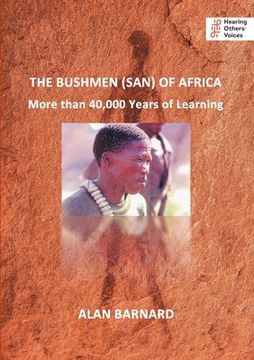Synopsis "The Bushmen (San) of Africa: More than 40,000 Years of Learning (in English)"
What is a 'Bushman'? Is the very word demeaning, or is it a word one can take pride in? I think it is the latter, and in this book I will explain why. The theme of the book is education, and that really is a complex topic. When I lived in the Kalahari, I learned a great deal. Some of what I learned is similar to book knowledge: about botany and zoology, the seasons, time, the environment, and so on. Some was really esoteric: about kinship, religion, politics, economics - all the things that make up any human society. What struck me the most is how we are all human, and that the essence of our humanity is to be found in everything we, as humans, do. Why do we study the Bushmen? Well, they are interesting. Not just that, but they have a lot to teach us. The first humans existed around 315,000 years ago. They were Africans. We know this thanks to some careful studies by archaeologists, palaeontologists, and geneticists. Some of these have been quite recent, for example a paper published in the journal Nature in 2017. If humans have been here for that length of time, what were they doing? How did they live? Did they even have language? Did they have religion? Did they teach their young? Were they violent, or were they peaceful? These are some of the big questions, and in this book we will learn how to answer at least some of them.What do we know about Bushmen? Actually, 'Bushman' is a problematic word. In the eighteenth century, the word 'Methodist' was similarly problematic. Christians in the Church of England regarded 'Methodism' as ridiculously methodical. However, Methodists, as they came to be called, thought otherwise, and the name stood. Today many people don't like the label 'Bushman'. They prefer to use the term 'San' instead. (San is meant to be pronounced with a long 'ah' for the 'a'.) But remember: neither 'Bushman' nor 'San' are Bushman (or San) words! 'San' was reinvented in the 1970s on the grounds that 'Bushman' was thought to be derogatory, or possibly sexist. The female equivalent, by the way, is 'Bushman woman' (not Bushwoman). Today, both terms are in use, and there is disagreement both in academic circles and among Bushmen themselves about which term is better. And which is worse: Bushman or San? Indeed, as Kuela Kiema suggests below, there are other alternatives, such as 'Kua', which is used parts of the south-eastern Kalahari. Some academics prefer 'Bushman', and others prefer 'San'. Similarly with Bushmen or San themselves.

